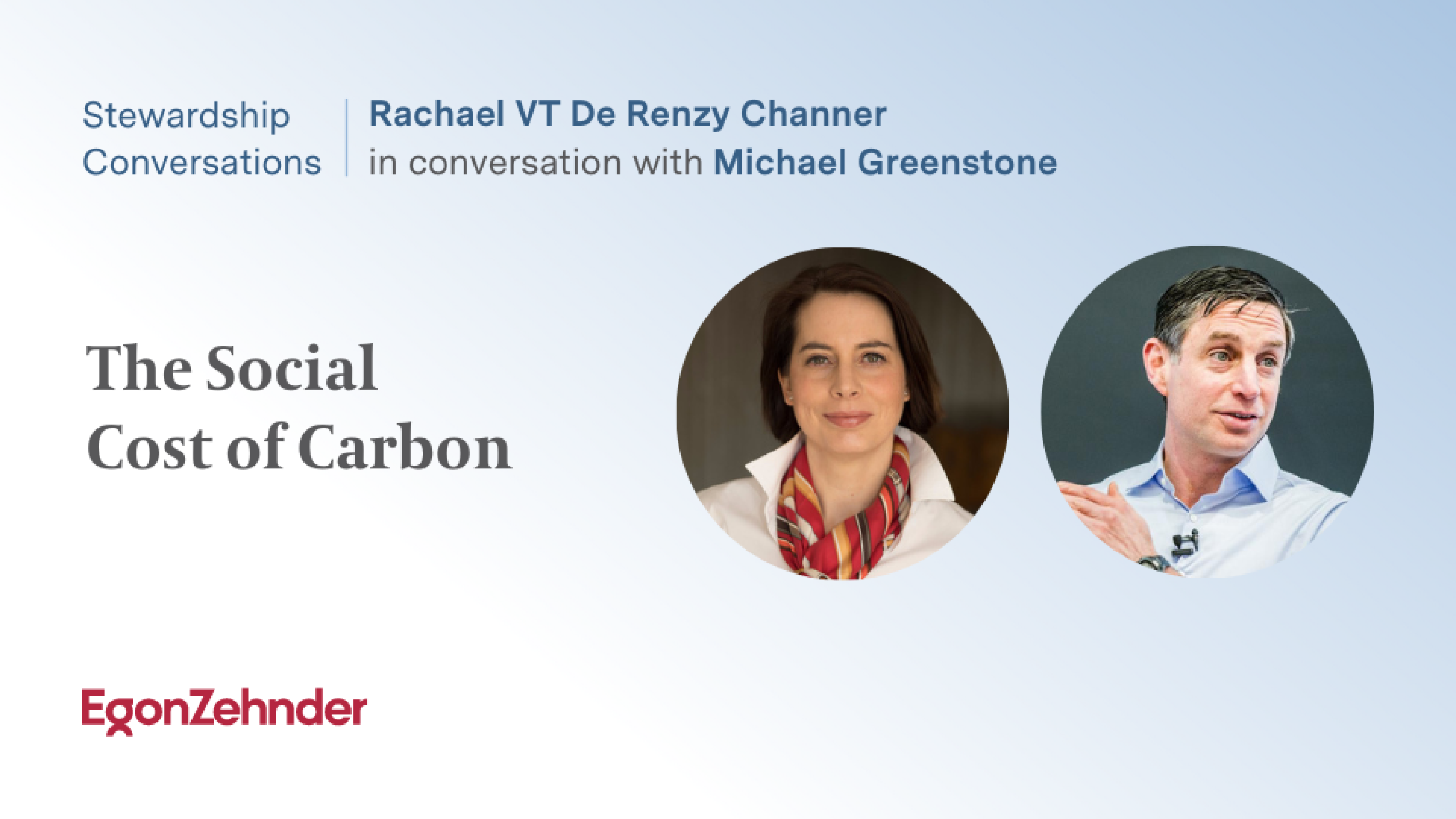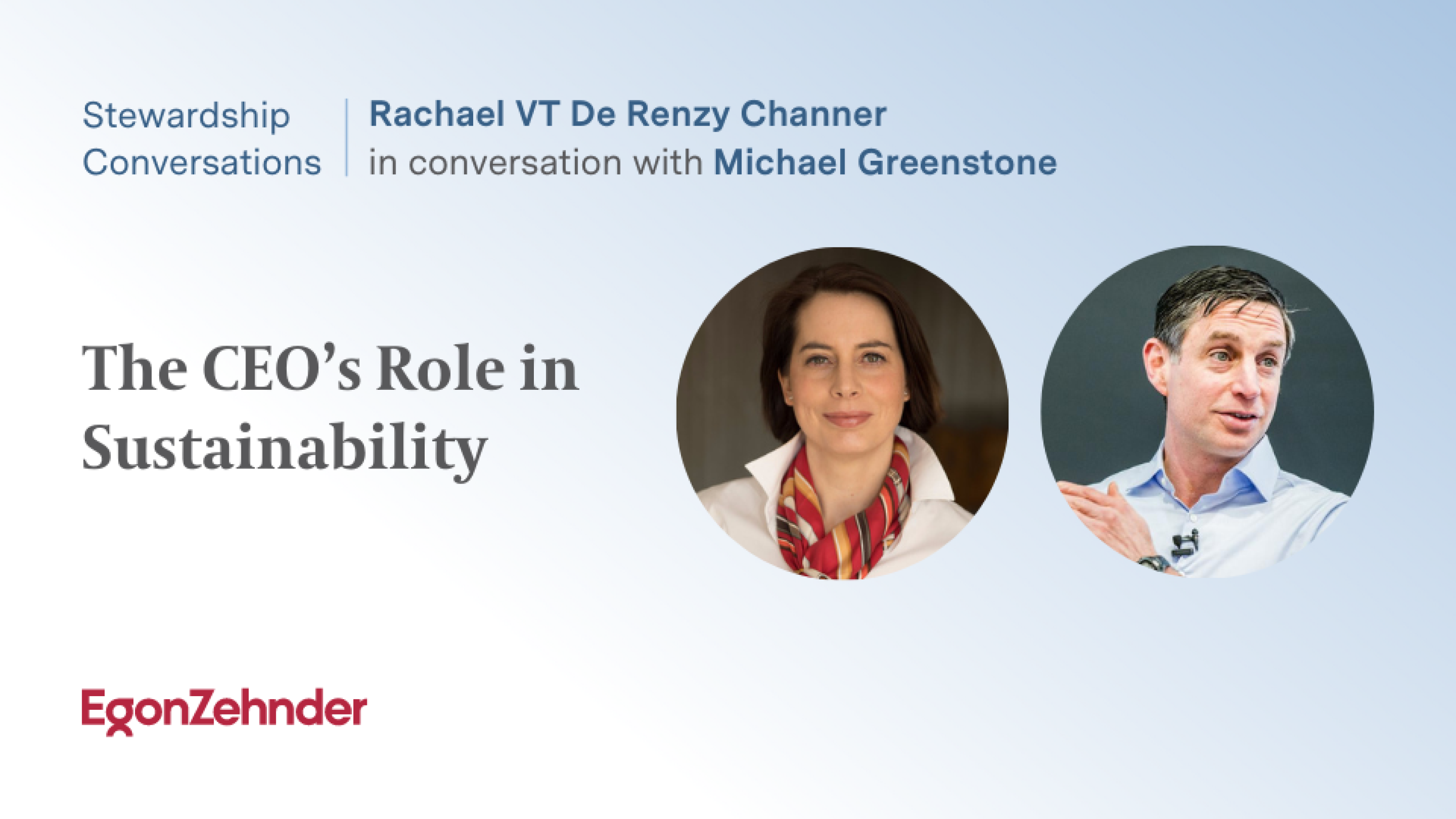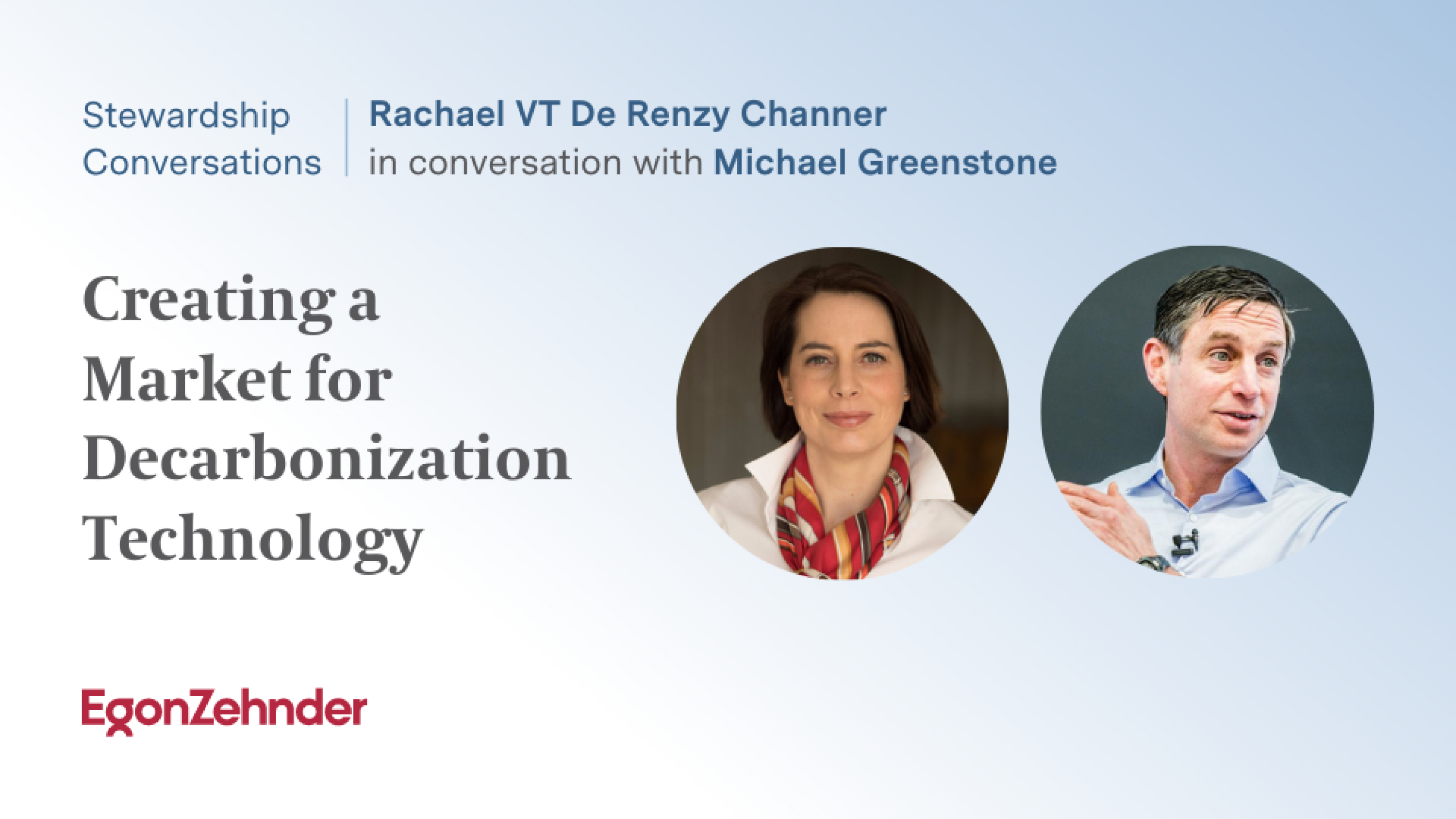What does our planet care about? Michael Greenstone has a simple answer: “CO2 in the atmosphere,” he says, highlighting that the planet doesn’t care how it gets removed, it just wants less of it.
I had the pleasure of interviewing Greenstone, Climate Vault co-founder and Milton Friedman Distinguished Service Professor of Economics at the University of Chicago, during this year’s Climate Week in New York. In this engaging conversation, Greenstone's conviction reverberates: Climate change isn't just an environmental woe but a societal challenge demanding our urgent attention. His laser-like and pragmatic focus on what really matters and the social cost of carbon as the pivotal yet overlooked metric is particularly enlightening.
In our insightful conversation, Michael offers a panoramic view of the challenges and opportunities in the race against climate change and shares his unique insights into corporate leaders, the CEO dilemma, and governmental hurdles and the role of creating a market to incentivize technology, and more.
Michael explains some of the nuances of climate economics and a roadmap for collective action, urging us all to be conscious architects of a sustainable future.
Read on for highlights from our conversation:
You're widely recognized as an expert in the economics of climate change. Can you share what sparked your interest in this topic and what drives your work in this area?
I'm a reluctant academic, navigating the intersection of making the world better and understanding it. A series of accidents led me to environmental energy economics, studying the Clean Air Act, which is like conventional air pollution, the things we breathe that makes us sick. And I started to realize, in the early 2000s, ‘wait a minute, how can I not study climate change?’ It gave me a chance to get a running start, and then one thing led to another.
How do you define your personal purpose?
My purpose lies in the intersection of opportunities to learn about the world and opportunities to make it a better place. I seek a mission that excites me to come to work every day, contributing actively to both understanding and improving the world.
You've mentioned the social cost of carbon as the most important number you have never heard of. Can you explain what it means?
The social cost of carbon gauges the monetary damages of releasing an additional ton of CO2. It's vital for policy decisions like carbon taxes. The average person in the United States is responsible for about 15 tons of CO2 per year. And if you multiply that 15 by the social cost of carbon, you'd find out the climate damages that we're all causing.
My latest research suggests the social cost is around $200 per ton. So the average person in the United States is doing about $3,000 worth of Climate damages that their children and their children's children will be forced to confront per year. This number serves as a compass for crafting effective policies, whether through carbon taxes or emission regulations.
What traits or characteristics do you identify in leaders driving change in corporations for accelerated decarbonization?
I've been struck by leaders who are taking a stand on what's important. Many have decided to commit their organizations to reduce their carbon footprint or to be net zero or carbon neutral voluntarily, despite governments lagging on carbon policy. I’ve been even more impressed by the ones who set near term targets and the ones who commit whoever's in their seat in 2050 to some target. Nevertheless, seeing organizations, particularly private sector firms, take actions that don't necessarily lead to higher profits. It's noteworthy.
There seems to be tension in doing good and doing well. How do CEOs navigate this dilemma, especially with short-term investor pressures?
It's very difficult as a CEO to act alone. The most impressive ones advocate for rule changes and robust carbon policies. It's not just a firm-by-firm challenge; everyone—private firms, civil society, and government—must play a role. It’s also up to government to set the rules.
What's holding governments back in taking decisive climate action despite the urgency?
Confronting climate change entails immediate costs, leading to complex politics. In the U.S., divided government and concentrated costs make it challenging. American climate exceptionalism is evident without carbon pricing. The Inflation Reduction Act is quite a big deal, but despite the urgency and the importance of this decade, we're not seeing the political regulation coming through.
As a leader in developing cutting-edge technologies, what are the human and technological challenges to solving the climate crisis?
What works really well in organizations is to set a clear mission. Giving people a reason to come to work every day and be excited about the work.
On technology, the challenge is to create a market for what technology will produce. Every climate plan has a super magical moment at its center where we start pulling carbon out of the atmosphere until the planet is net negative. And I ask, ‘well, is this because people believe in unicorns or that around every corner there's a rainbow?’ Because I don't believe that technology just drops out of the sky.
Seeing a price signal is critical—it tells innovators or people who might want to come up with some crazy idea in their garage that there’s a market for them, that we will buy the product. Climate Vault is trying to make this massive advanced market commitment on carbon dioxide and mobile technologies and give these firms and nascent firms reason to believe that, if they follow through on their ideas, there'll be somebody there to buy their product. The challenge lies in ensuring that technologies meet rigorous standards for effectiveness.
How can the private sector align to take urgent action in addressing the global energy challenge?
Advocating for rational policies and taking voluntary actions to reduce carbon footprint is key. A single-minded focus on reducing CO2 emissions is vital. Aligning with policies that don't subsidize fossil fuels ensures fair competition among technologies. Trying to see the big picture by asking ‘does the planet care?’ And the planet cares about literally one thing: CO2 in the atmosphere. It doesn't care if you use solar panels to get there. It doesn't care if how you did it. It just wants less of that stuff in the atmosphere.
How do you see the conversation on sustainability incorporating the social aspect alongside the focus on carbon?
Climate change impacts are highly unequal globally. Discussing climate without considering the social part is incomplete. Unrestrained climate change disproportionately affects regions already facing challenges, exacerbating global inequalities. It's essential to acknowledge the social dimensions of sustainability beyond just the carbon footprint, especially in regions like Africa, where environmental impacts have significant social angles. The holistic approach to sustainability must consider both environmental and social impacts.
In your career, you've met many people. Who inspires you?
Yeah, well, so I mean, the obvious answer is Michael Jordan. Setting aside my lifelong interest in playing and watching basketball, I was certainly inspired by my Ph.D. advisor, Sorley Eschenfield and David Card, who had this and continues to have this very fierce commitment to understanding what was true and what wasn't true.
With his expertise from the realm of climate economics, Michael Greenstone's voice stands out. Throughout our conversation, his pragmatic insights shone through as he advocated for clear missions, a structured market for climate solutions and a sharp focus on reducing CO2 emissions. Greenstone doesn’t appear to believe in unicorns and his impassioned plea for a holistic view of sustainability recognizes the difficulty and real challenges faced by leaders today and still calls on them to make real and difficult choices as they lead businesses. Greenstone's journey and perspectives provides an invitation for readers to actively engage in reshaping our world for a sustainable future. He leaves us with a resounding call to embrace a conscious, inclusive path toward a sustainable tomorrow.








